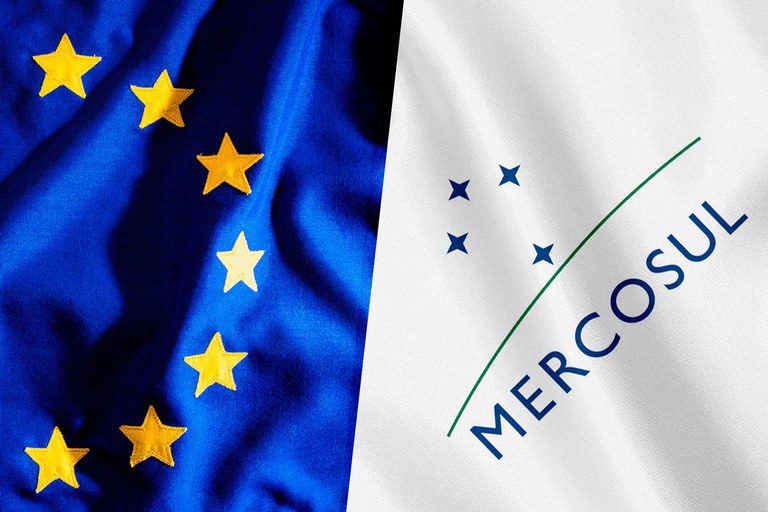Mercosur-European Union Agreement: Opportunities and Challenges for International Businesses

The Milestone of Finalizing Negotiations
On 6 December 2024, the president of the EU Commission and those of the Mercosur countries (Brazil, Argentina, Paraguay, and Uruguay) formally concluded the negotiations on the agreement, overcoming political and technical barriers that had delayed progress on its implementation since the preliminary understanding announced in 2019.Described by the European Commission as a "revolutionary partnership," this agreement, if implemented, will bring new opportunities for international businesses, particularly in industrial and agricultural sectors.
Finalizing the negotiations was a crucial step, but the agreement still needs to be ratified by the participating countries. As a next step, the pact's text will undergo legal review and translation into the contracting states' languages.
Impacts and Benefits for Businesses
1. Expanded Market Access and Tariff Reduction: The agreement envisions the gradual elimination of tariffs on 91% of goods exported from the EU to Mercosur and 92% of goods from Mercosur entering the EU. For European businesses, this represents significant cost reductions in sectors such as automotive, pharmaceuticals, and technology. On the other hand, Mercosur exporters will gain competitiveness in the European market, with products like beef, poultry, soybeans, and sugar entering with reduced tariffs.2. Simplification and Competitiveness: Beyond tariffs, the pact promotes regulatory harmonization and simplifies customs procedures, reducing non-tariff barriers. Mercosur companies stand to benefit from streamlined exports and lower administrative costs, while European companies will find better conditions to compete in South American markets.
3. Protection of Intellectual Property: The agreement also provides strengthened protection for geographical indications (GIs), benefiting iconic European products such as cheeses and wines, which will be safeguarded against imitations in Mercosur countries.
4. Commitments to Sustainability: One of the pact's pillars is its commitment to sustainable development. The agreement includes binding provisions to combat deforestation, particularly in the Amazon, and alignment with the Paris Agreement, featuring concrete targets to reduce greenhouse gas emissions. This focus on sustainability promotes a more responsible business environment aligned with global values.
Implications for the Agricultural Sector
For Mercosur countries, the agreement opens doors to the European market, especially benefiting agricultural exporters. Products such as beef, poultry, soybeans, and sugar will face reduced or eliminated tariffs, enhancing their competitiveness. Conversely, European farmers have expressed concerns about the influx of these products, fearing unfair competition due to differences in production costs and regulatory standards.Persistent Challenges
Despite the optimism, implementing the agreement faces resistance. Ratification requires approval from at least 15 of the 27 EU member states, representing 65% of the bloc's population. Countries such as France, Poland, Italy, Austria, and the Netherlands have raised concerns, mainly related to the impact on the agricultural sector and environmental issues. Moreover, sustainability commitments demand active monitoring and engagement from all involved parties.Preparing for the New Trade Landscape
With the conclusion of negotiations, businesses from both blocs should prepare for the transformations the agreement may bring, if ratified. Regulatory harmonization and tariff elimination will create new dynamics, requiring adjustments to business strategies and investments in sustainability.Businesses seeking to navigate this scenario successfully can rely on ILM Group's support. With a client-focused approach and deep knowledge of the Brazilian market and the Mercosur region, ILM Group offers tailored solutions to help enterprises thrive in this new economic landscape.
Services Offered by ILM Group:
- Administrative and Financial Services: Comprehensive solutions encompassing all essential administrative and accounting services to unlock the potential of the Brazilian market and drive business success.- Business Development: Assistance in identifying business opportunities and providing strategic insights for expansion in the Brazilian market.
- Fiduciary Services and Auditing: Ensuring legal and financial compliance, meeting local and international regulatory standards.
- Recruitment and Staffing: Support in hiring skilled professionals aligned with each company's specific needs.
- Expansion Across Mercosur and Latin America: Facilitating market entry and operations in other Mercosur and Latin American countries, leveraging regional expertise.
